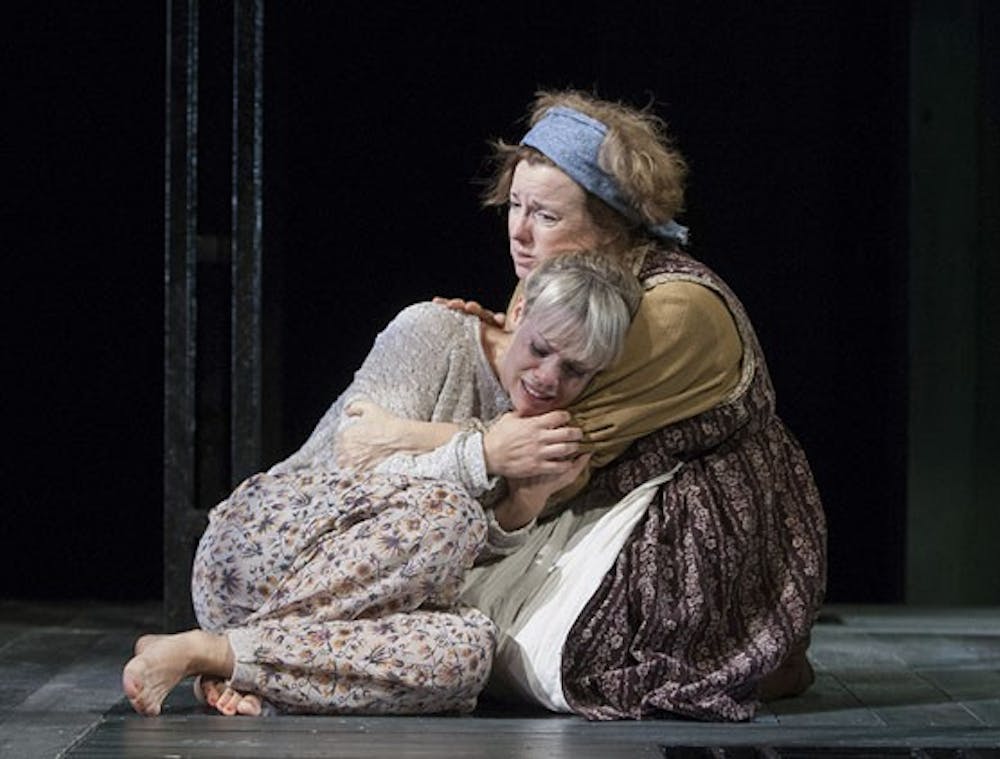At least four centuries separate modern society from the first performance of William Shakespeare’s “Romeo and Juliet.” The play remains an enduring tale of love staged across the globe, and is in D.C.’s backyard at the Folger Theatre.
However, this adaptation of “Romeo and Juliet” aims to be a simpler version of the play, stripping it down and making it more accessible to modern audiences.
“There’s no gimmicks to the storytelling to make it feel more relevant, but hopefully those are the things people would draw their own conclusions,” Director Aaron Posner said. “I’m less interested in the cautionary tale than the tale of young people who lack perspective. That’s who they are – they are passionate people who are in love.”
From fantasy to reality
Michael Goldsmith, who is playing Romeo in the Folger production, arrived in D.C. after auditioning for the part in New York.
“I had the initial audition, then a callback a couple days later and then a couple weeks later they put me on a train down to D.C. because Erin Weaver (Juliet) was already cast and I had to read with her and see the sort of chemistry there,” he said.
Weaver, a D.C. actress who previously performed in “Xanadu” and “The Last 5 Years,” did not think she could portray Juliet.
“This is a role I auditioned for a couple years ago. I didn’t think of myself actually as a Juliet,” Weaver said. “I got very involved with the text and I got very into the role, and I sort of started to find my way into the text that surprised me.”
Posner pitched the idea of performing “Romeo and Juliet” to the Folger Theatre openly and Janet Griffin, a Folger artistic producer, accepted the new production. Soon after, they began the process of how the actors would manage to find their own ways to interpret the characters.
Brian Dykstra, who plays Lord Capulet, said performing his character requires ignoring other influences and focusing centrally on the script.
“For me everything is in the text,” Dykstra said. “The critical analysis can help some actors, I’ve only seen it get it in the way.”
Weaver found taking the same approach and boiling the text down to its basic elements allowed for her to unlock Juliet’s true character.
“My goal is not to try to play Juliet,” she said. “My goal is to play the Juliet that makes sense to me.”
Posner researched and spoke with experts about what causes such unrequited love to emerge in young people to get to the play’s core.
“What we did more of was I talked to teenagers about love,” he said. “I talked to teen psycologists about teen suicide and love. There’s a lot of work. You do a fair amount of research.”
Posner said he tried to base the play around telling the story, allowing the audience to judge the message of his production of “Romeo and Juliet.”
“We’re trying to tell the truth as we understand it,” Posner said.
But Posner found that there are still themes, ideas and interpretations within the play left to be staged.
“There’s love, there’s passion and there’s death,” Posner said. “These are the core values of our lives.”
“Romeo and Juliet” plays at the Folger Theatre through Dec. 1. For ticket information visit their website.
dkahen-kashi@theeagleonline.com





